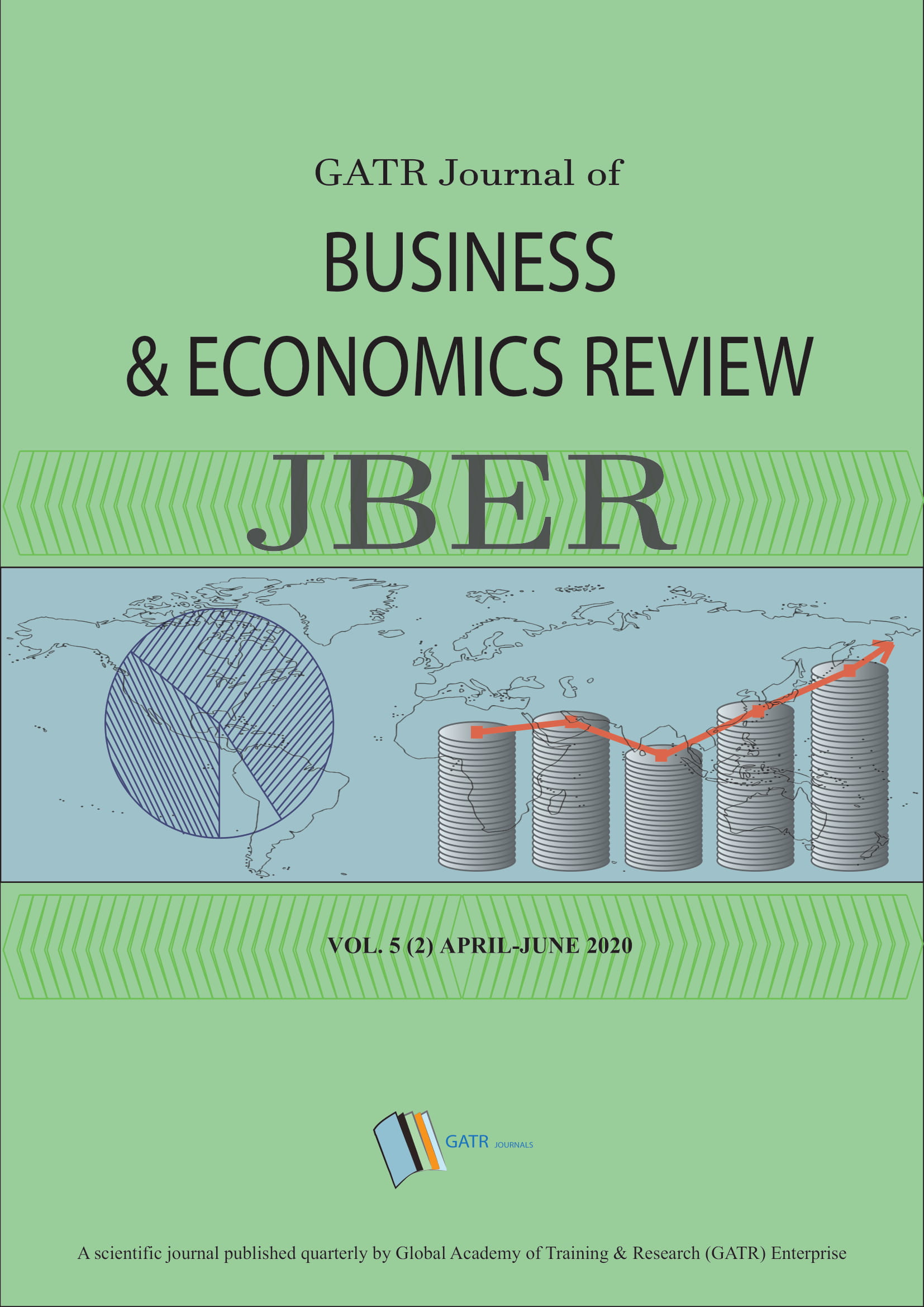
Welcome to the submission site of
GATR Journal of Business and Economics Review.
Login to your account if you already have onr or create a new one if you're a new user.
Journal of Business and Economics Review (JBER) welcomes novel scholarly works and tries to stimulate the advancement of knowledge and understanding within the spectrum of business and economics.JBER aims to be premier journal by contributing dissemination of original scholarly work among academics and practitioners in the area of business and economics by publishing manuscripts that focused on significant findings in relation to established theories or assumptions. The submitted papers should be founded on development of new theories and examining existing one. While research may focus on a single county or small group of countries, the journal encourages submissions that explore issues affecting international business and reflect cross-border or comparative dimensions.The empirical papers may employ a range of qualitative, quantitative and other methodologies so long as they reflect rigorousness, significant research finding and insight, logical manner.
JBER policy prohibits an author from submitting the same manuscript for concurrent consideration by two or more publications. It prohibits as well publication of any manuscript that has already been published either in whole or substantial part elsewhere.
JBER is a quarterly (March, June, September and December) periodical that considers for publication original articles as per its scope. The journal publishes in English and it is open to authors around the world regardless of the nationality.
The Journal is available globally.
The JBER aims to provide platform for high quality research related to business and economics. The subject areas that is relevant to journal scope include:

Welcome to the submission site of
GATR Journal of Business and Economics Review.
Login to your account if you already have onr or create a new one if you're a new user.
Contact Us:
Tel: +60321175006
Mobile: +60173690275
Email: gatrjournals@gatrenterprise.com.
Copyright © 2013-2020 by GATR Enterprise. All rights reserved.
